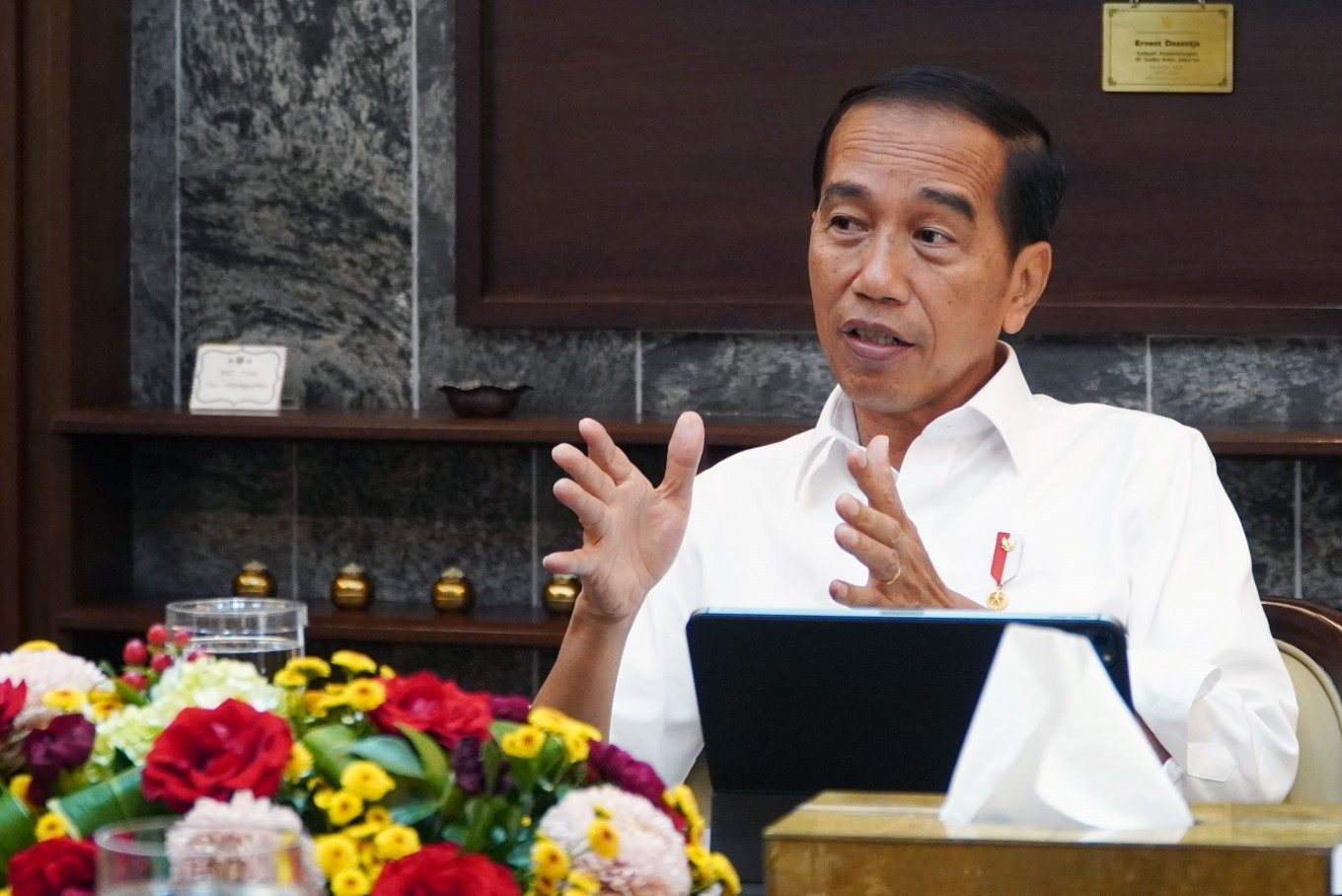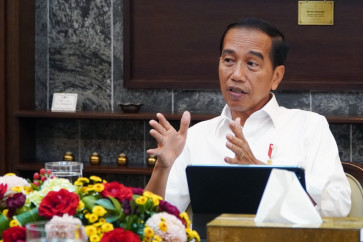Popular Reads
Top Results
Can't find what you're looking for?
View all search resultsPopular Reads
Top Results
Can't find what you're looking for?
View all search resultsAnalysis: Jokowi's unwavering support for Prabowo continues for 2025 budget
Change text size
Gift Premium Articles
to Anyone
P
resident Joko “Jokowi” Widodo has been trying to facilitate a smooth transition of power for his successor Prabowo Subianto by various means, but accommodating Prabowo’s signature programs in the 2025 budget has proven to be the most challenging considering the narrowing fiscal space and economic deceleration.
To encourage a smooth transition, President Jokowi facilitated the amendment of the 2008 Ministry Law by removing the limitation on the number of ministries to 34 to allow Prabowo to expand the number of ministerial posts to over 45 or even 50 to accommodate more political parties into Prabowo’s coalition.
President Jokowi has appointed Prabowo’s men to various strategic positions, including to deputy finance minister, to ensure that Prabowo’s programs are accommodated in the 2025 budget. During a recent meeting with a Finance Ministry team to draft the 2025 budget, President Jokowi told the team to accommodate all of Prabowo’s programs.
So far, the Finance Ministry has included Prabowo’s signature free school lunch program, with a budget of Rp 71 trillion (US$4.4 billion). The expansion of the number of ministerial posts under Prabowo will result in a larger budget. Even before the number of ministries are expanded, the House budget committee recently passed on to the Finance Ministry an additional budget of Rp 598.9 trillion that the committee compiled from requests by various ministries and state institutions for budget increases.
Such requests of budget increases will most likely not be accommodated in the 2025 budget considering the narrowing fiscal space because of the Rp 800 trillion of government debt that will mature in the next year, comprised of Rp 705.5 trillion in government bonds and Rp 94.8 trillion in debt. The total budget for 2024 is Rp 3.32 quadrillion.
At the same time, the government is constrained by the 2003 State Finance Law that limits the maximum budget deficit to 3 percent. Finance Minister Sri Mulyani Indrawati stated that the budget deficit for 2025 is estimated to be between 2.29 and 2.82 percent as 2025 will see expanding revenue.
However, achieving next year’s revenue target will be hard under the economic slowdown. The Indonesian economy is weakening as household purchasing power weakens along with a declining middle-class population in the past few years, from 60 million people in 2018, or 23 percent of the total population, to 58 million people in 2023.



















